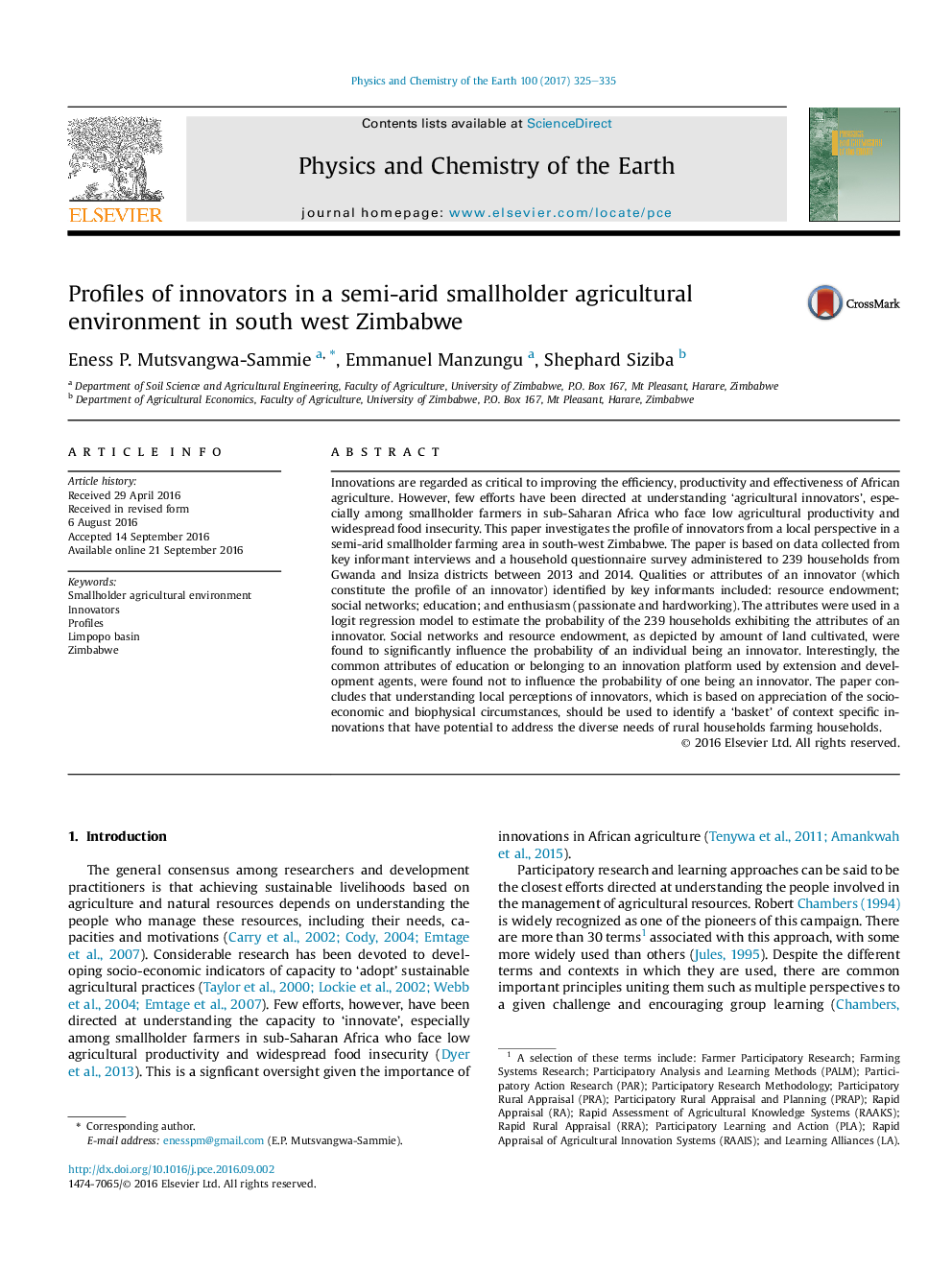| Article ID | Journal | Published Year | Pages | File Type |
|---|---|---|---|---|
| 5784574 | Physics and Chemistry of the Earth, Parts A/B/C | 2017 | 11 Pages |
â¢Various types of innovators exist, e.g. social connectors, knowledge integrators, users, early adopters and inventors.â¢Education, resource endowment, social networks, gender and enthusiasm were identified as important attributes of innovators.â¢Social networks and land cultivated were significant factors in profiling innovators.â¢Profiling innovators helps extension and development agents, better target their investment in order to maximize impact.
Innovations are regarded as critical to improving the efficiency, productivity and effectiveness of African agriculture. However, few efforts have been directed at understanding 'agricultural innovators', especially among smallholder farmers in sub-Saharan Africa who face low agricultural productivity and widespread food insecurity. This paper investigates the profile of innovators from a local perspective in a semi-arid smallholder farming area in south-west Zimbabwe. The paper is based on data collected from key informant interviews and a household questionnaire survey administered to 239 households from Gwanda and Insiza districts between 2013 and 2014. Qualities or attributes of an innovator (which constitute the profile of an innovator) identified by key informants included: resource endowment; social networks; education; and enthusiasm (passionate and hardworking). The attributes were used in a logit regression model to estimate the probability of the 239 households exhibiting the attributes of an innovator. Social networks and resource endowment, as depicted by amount of land cultivated, were found to significantly influence the probability of an individual being an innovator. Interestingly, the common attributes of education or belonging to an innovation platform used by extension and development agents, were found not to influence the probability of one being an innovator. The paper concludes that understanding local perceptions of innovators, which is based on appreciation of the socio-economic and biophysical circumstances, should be used to identify a 'basket' of context specific innovations that have potential to address the diverse needs of rural households farming households.
